The Story of Temple Drake Blu-ray Movie
HomeThe Story of Temple Drake Blu-ray Movie 
Criterion | 1933 | 71 min | Not rated | Dec 03, 2019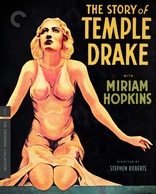
Movie rating
7.2 | / 10 |
Blu-ray rating
| Users | 0.0 | |
| Reviewer | 4.0 | |
| Overall | 4.0 |
Overview
The Story of Temple Drake (1933)
When a boozehound date strands her at a bootleggers' hideout, Temple Drake, the coquettish granddaughter of a respected small-town judge, is subjected to an act of nightmarish sexual violence and plunged into a criminal underworld that threatens to swallow her up completely.
Starring: Miriam Hopkins, William Gargan, Jack La Rue, Florence Eldridge, Guy StandingDirector: Stephen Roberts (I)
| Drama | 100% |
Specifications
Video
Video codec: MPEG-4 AVC
Video resolution: 1080p
Aspect ratio: 1.34:1
Original aspect ratio: 1.37:1
Audio
English: LPCM Mono (48kHz, 24-bit)
Subtitles
English SDH
Discs
Blu-ray Disc
Single disc (1 BD)
Playback
Region A (locked)
Review
Rating summary
| Movie | 4.0 | |
| Video | 4.5 | |
| Audio | 5.0 | |
| Extras | 3.5 | |
| Overall | 4.0 |
The Story of Temple Drake Blu-ray Movie Review
Reviewed by Dr. Svet Atanasov December 13, 2019Stephen Roberts' "The Story of Temple Drake" (1933) arrives on Blu-ray courtesy of Criterion. The supplemental features on the disc include new program with cinematographer John Bailey as well as new interviews with critics Sara Imogen Smith and Mick LaSalle. The release also arrives with an illustrated leaflet featuring an essay by critic Geoffrey O'Brien and technical credits. In English, with optional English SDH subtitles for the main feature. Region-A "locked".
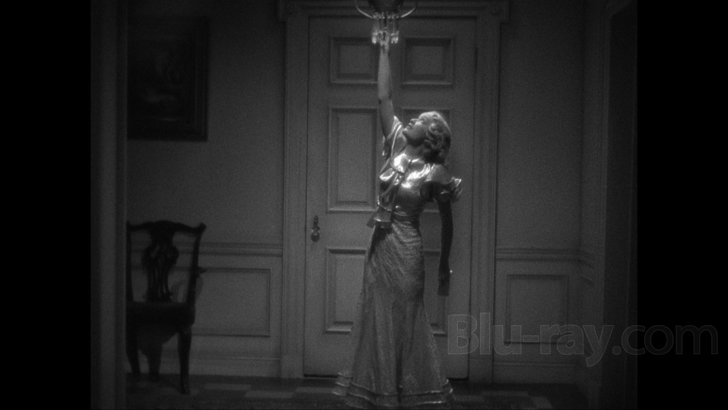
Now that I have finally viewed this notorious pre-Code film, I can understand why it was withdrawn from multiple markets across the county -- it is rough, really rough, and in certain areas provocatively ambiguous, which means that in the early 1930s it must have stuck out like a sore thumb. It is based on a novel by William Faulkner that is supposedly even rougher. I have not read it, but a couple of days ago I ordered a copy and can barely wait for it to reach my mailbox. (The title of the novel is Sanctuary, in case you wish to get one as well).
I had to view the film twice so that I can study its main characters better. They are very intriguing because all of them are ‘bad’ in different ways -- on one end there are the shady characters that are responsible for all the nasty acts, and on the opposite end are the intellectually cultured and socially refined characters that reveal a rather spectacular range of prejudices. They are all cynical players too, the kind that can easily craft a situation that would allow them to overpower their target. I found this to be the most fascinating aspect of the narrative because it makes their predicaments look like different rounds of a fascinating boxing match. And it isn’t a pretty one -- they all jump in the mud and get dirty. Real dirty.
Miriam Hopkins plays the title character, Temple Drake, a young and rather frivolous Southern girl who is not yet ready to settle down. But this is exactly what her father, a prominent judge, wants to see her do – start a family with Stephen Benbow, an ambitious and smart lawyer, whom she has been seeing for a long time. This disagreement is what fuels all of the drama that the film chronicles. Temple enjoys the lawyer’s company but isn’t in love with him, and this is something that her father does not understand. How could she not want to spend the rest of her life with him? He is a gentleman with potential, the type of bachelor that any girl should want to marry.
After attending and then prematurely leaving a big but disappointing party Temple and a good friend have a bad car accident on a desolated country road. Bruised and still in shock, the two are picked up by a gang of bootleggers working for a vicious character named Trigger (a superb Jack La Rue). At his secluded lair Temple recovers, but is later on raped and forced to become a prostitute. The lawyer eventually tracks down the bootleggers and attempts to give Temple back her freedom, but gets the surprise of his life when she tells him in his face that she does not want to be saved because she has become Trigger’s girl. However, sometime after that Temple does reclaim her freedom and then again faces the lawyer in a courtroom where her statement can free and innocent man -- and in the process destroy her.
There are a couple of reasons why earlier I described the film as ‘rough’. The biggest one is the fact that it remains ambiguous in areas where things really ought to be black and white. For example, it is not entirely clear if Temple’s decision to remain with Trigger is driven by fear, guilt, psychological distress, or some sort of a rebellious desire to make a statement on her upper-class past. At the end the film does place everything in a proper for the era it comes from context, but it just feels like the girl is in fact a much more complex character, with issues that are way too dangerous to fully expose. (There is no doubt that this is precisely why some distributors stopped screenings of the film. The troubling nature of the character is quite simply undeniable). The loose lifestyle -- in the upper echelon and very bottom of society -- that is captured in the film isn’t decisively rejected either. Its immorality is exposed but the drama that it initiates isn’t utilized to question the conditions that have allowed it to flourish, and any way you look at it at the time this was clearly a disturbing omission.
Hopkins’ performance is remarkably nuanced and allows the difficult transformation of her complex character to appear incredibly authentic. It is really the type of bold female performance that should have been praised and recognized as ‘groundbreaking’. La Rue is just as impressive as the nasty thug who sees and wants to keep the girl as a toy. A few times Gargan appears a tad overly melodramatic, but his performance is solid as well.
The Story of Temple Drake Blu-ray Movie, Video Quality 
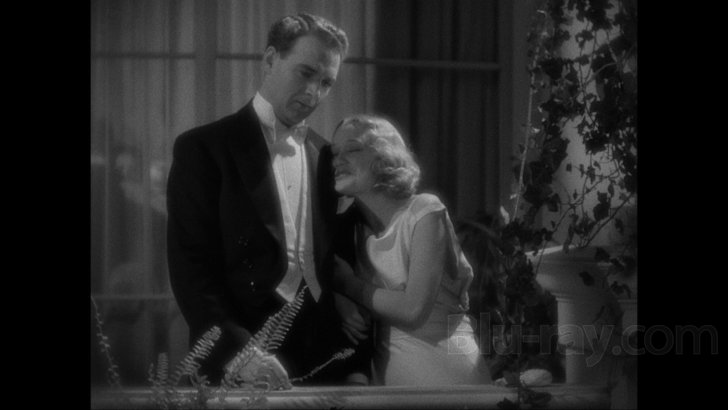
Presented in an aspect ratio of 1.34:1, encoded with MPEG-4 AVC and granted a 1080p transfer, The Story of Temple Drake arrives on Blu-ray courtesy of Criterion.
The following text appears inside the leaflet that is provided with this Blu-ray release:
"This high-definition digital transfer was created was created from a 35mm internegative. The HD transfer and restoration were completed at FotoKem in Burbank, California, under the supervision of Twentieth Century Fox. The original monaural soundtrack was remastered from the 35mm optical soundtrack negative using Avid's Pro Tools and iZotope RX."
The film looks very healthy and even rather surprisingly vibrant. I projected it and a lot of the visuals, even the darker ones, boast really nice nuances of blacks, grays, and whites. As a result, delineation and depth are consistently excellent. Density levels are also very good and consistent. There are no stability issues. A few tiny blemishes remain, but they are of the kind that are best to leave in because they already appear substantially toned down. There are no traces of problematic digital work. All in all, this is a very nice organic presentation that makes it exceptionally easy to enjoy the film. (Note: This is a Region-A "locked" Blu-ray release. Therefore, you must have a native Region-A or Region-Free player in order to access its content).
The Story of Temple Drake Blu-ray Movie, Audio Quality 
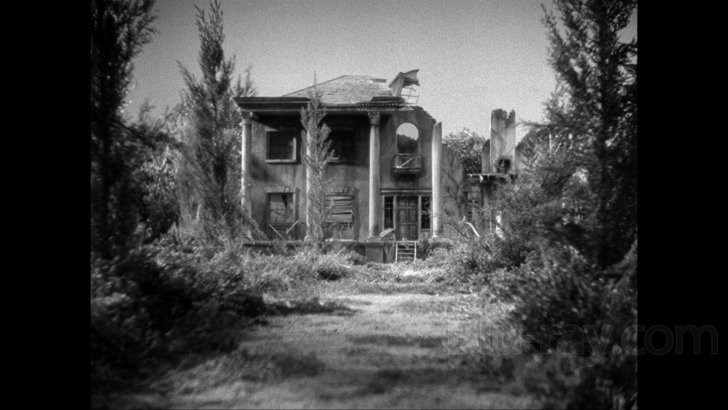
There is only one standard audio track on this Blu-ray release: English LPCM 1.0. Optional English SDH subtitles are provided for the main feature.
The audio is clean, clear, and stable. When I viewed the film, I turned up the volume quite a bit and was actually quite surprised to hear how healthy the upper register is. There are no audio dropouts or distortions to report in our review.
The Story of Temple Drake Blu-ray Movie, Special Features and Extras 
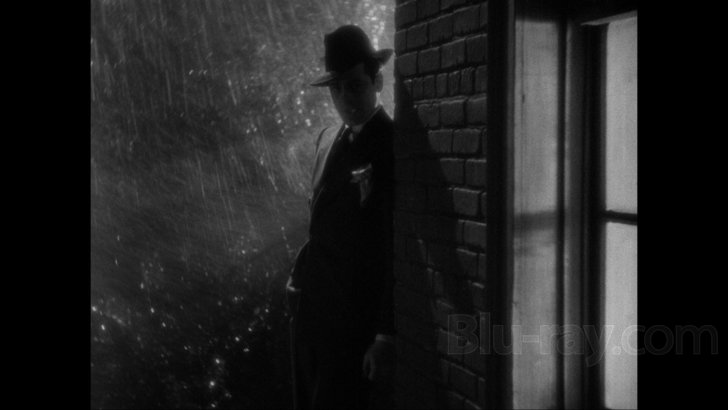
- Honest Expression - in this new program, critic and author Mick LaSalle (Complicated Women: Sex and Power in Pre-Code Hollywood) discusses The Story of Temple Drake and some of its key themes and qualities that made it controversial. The program was produced exclusively for Criterion in 2019. In English, not subtitled. (15 min, 1080p).
- Pre-Code Powerhouse - in this new program, critic Sara Imogen Smith discusses the visual style of The Story of Temple Drake and Miriam Hopkins' performance. The program was produced exclusively for Criterion in 2019. In English, not subtitled. (20 min, 1080p).
- Casting A Shadow - in this new program, cinematographer John Bailey and Matt Severson, director of the Margaret Herrick Library at the Academy of Motion Picture Arts and Sciences, examine the main reason why The Story of Temple Drake was once considered unfilmable as well as its cinematography. The program was created by filmmaker Daniel Raim in 2019. In English, not subtitled. (18 min, 1080p).
- Leaflet - an illustrated leaflet featuring critic Geoffrey O'Brien's essay "Notorious" as well as technical credits.
The Story of Temple Drake Blu-ray Movie, Overall Score and Recommendation 
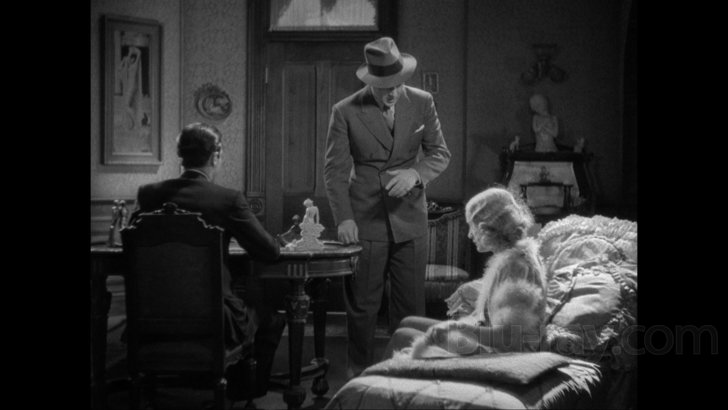
During the DVD era I attempted to track down a copy of The Story of Temple Drake but it turned out to be a pretty difficult thing to do, so I gave up. I knew that the film had a reputation, and now that I have finally viewed it, I must say that it is well-deserved. Indeed, it remains ambiguous long enough to make you wonder if you are deconstructing its heroine as you should as well as how she actually feels about everything that happens around her, which to put it mildly isn't pretty. Miriam Hopkins gives a bold yet very nuanced performance that even in the old days should have been praised and recognized as 'groundbreaking'. Criterion's release of The Story of Temple Drake is sourced form a wonderful new master and has yet another very interesting program with cinematographer John Bailey. VERY HIGHLY RECOMMENDED.
Similar titles
Similar titles you might also like

Woman Is the Future of Man
여자는 남자의 미래다 / Yeojaneun namjaui miraeda
2004

Young Mr. Lincoln
1939

Where the Green Ants Dream
Wo die grünen Ameisen träumen
1984

Certain Women
2016

Wake in Fright
1971

Keyhole
2011

Female Perversions
Standard Edition
1996

Baby Doll
Warner Archive Collection
1956

A Dry White Season
1989

In Dubious Battle
2016

The Conformist
Il Conformista | 4K Restoration
1970

Sex, Lies, and Videotape
1989

Safe in Hell
Warner Archive Collection
1931

Hamlet
1948

Night After Night
1932

The Man Who Fell to Earth
Limited Collector's Edition
1976

The Celluloid Closet 4K
1996

Great Expectations
1946

Tom at the Farm
Tom à la ferme / English packaging / Version française
2013

The Children's Hour
1961